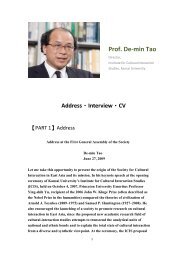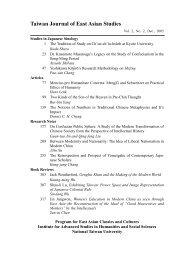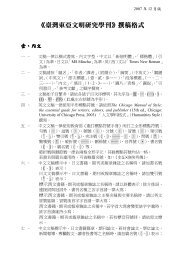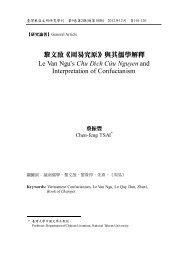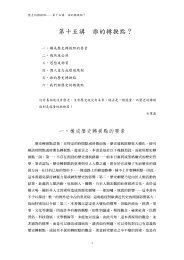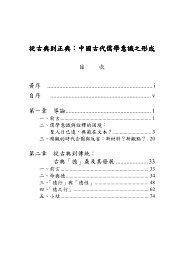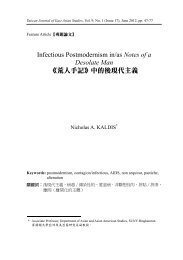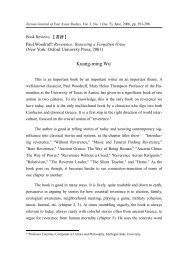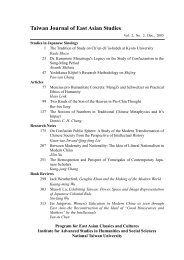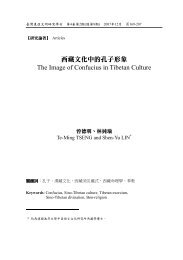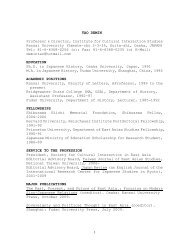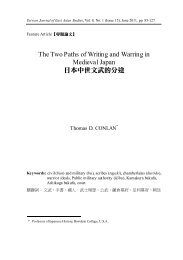臺灣東亞文明研究學刊 - 東亞經典與文化研究計畫 - 國立臺灣大學
臺灣東亞文明研究學刊 - 東亞經典與文化研究計畫 - 國立臺灣大學
臺灣東亞文明研究學刊 - 東亞經典與文化研究計畫 - 國立臺灣大學
You also want an ePaper? Increase the reach of your titles
YUMPU automatically turns print PDFs into web optimized ePapers that Google loves.
Nicholas T. PHILLIPSON Theorising the Problems of Small Nations in the Enlightenment 239<br />
competitors rather than to foster the economic development of the European<br />
economy as a whole. For the policies of 'the most stupid and factious Barbarians in<br />
the World' as Hume once described the English political class, all too closely<br />
resembled the barbarians Tacitus had once described in Germania, as men who<br />
fought to destroy and not to conquer. 9<br />
In another paper, it would be possible to show that although neither Fletcher's<br />
or Hume's thinking about Europe was 'typical' of their Scottish contemporaries,<br />
each had set himself the task of theorising important aspects of the political culture<br />
of their country's political elite and had done so from a perspective that was nonmetropolitan<br />
without being provincial. They were citizens of a small nation<br />
struggling with the problem of survival in a world of enormous monarchies with<br />
great overseas empires. They were interested in the lessons European history held<br />
for small nations as well as for great ones. And they saw that the future of liberty<br />
and security in modern Europe would depend to a lesser or greater degree on<br />
commerce. Fletcher's thinking picked up many of the ambivalences in his<br />
contemporaries understanding of commerce. It had helped to destroy liberty in the<br />
gothic world and would do so again unless the power of Europe's monarchies was<br />
held in check. On the other hand, there was no reason why properly managed<br />
economies should not serve as the basis for a new system of free government. If<br />
Fletcher's thinking articulated different aspects of his contemporaries political<br />
thinking, Hume's was designed to reshape it. Where Fletcher was ambivalent about<br />
the problem of commerce, Hume had no doubt of its civilising tendencies and of its<br />
value in promoting sociability and political stability in the peripheral territories of a<br />
great monarchy as well as in its courts. But where Fletcher had looked to new and<br />
elaborate forms of political engineering to ensure that commerce would enhance<br />
rather than corrupt a nation's liberties, Hume simply called on the present<br />
generation of rulers to use their magisterial powers to remove unnatural obstacles to<br />
9 David Hume-William Strahan, 25 October 1769, David Hume, The Letters of David Hume, vol. 2,<br />
p. 209.<br />
xv



